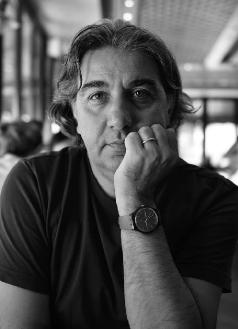 |
||
 |
We, our people, and our çorba, too Arian Leka Lecturer, University of Tirana, arianleka@ymail.com Avoiding “the exterior diasporas” – of the people who live outside the territory of a country like Albania – this article takes into consideration “the inner/inside diasporas” – the minorities whom we experience as ‘the other’ – of those that mark the reliefs on the social and cultural map, contributing to the diversity by becoming part of the culture of a country. · The text takes into consideration, not those who went away from us - the emigrants who transform and convert into a diaspora - but those who came in, to live among us, those with whom we share the life we still live together.· The purpose and the focus of this paper·is the presence of communities, ethnic minorities and homegrown groups within a nation.·It·addresses the issue of the minorities as diversity on one hand, and as enrichment on the other, which cannot be simply defined as multiculturalism. Ehen trying to decide the affiliation of the foreigner among us, we should first answer the question whether the foreigners are ‘our foreigners’ and perhaps not ‘our outsiders’. We do not discuss this on the example of Albanians,· such as the Arbëresh·diaspora in Calabria, Italy or on the “autochthonous minority” of Albanians -·Arbanas·in Zara, Croatia, but on the example of Macedonians, Bosnians, Egyptians and Roma people living in Albania. The article attempts to give answers to the questions about the quality and quantity of the space that we allow to the diasporas of the others, to “our foreigners”, on which we, we often apply Derrida’s wordplay that spins between the similar forms of two different verbs: “to differ” and “to defer” from/to the other·who·lives together with us·and shares with us a common life. Keywords: inner/inside diasporas, minorities, multiculturalism, diversity,
Arian Leka Arian Leka (1966) belongs to the group of authors who came to the forefront after the opening of the Albanian borders and were considered to be the avant-garde. With more than 20 years of literary activity behind him, Leka today is today considered a prolific author of 16 books. Arian Leka’s poems, essay, short stories and novels have been translated into German, French, Italian, English, Romanian, Bulgarian, Serbian, Spanish, Polish, Chinese, Portuguese, Montenegrin, Macedonian, Arabic and Croatian language. His short story “Brothers of the Blade was published in the anthology titled “Best European Fiction 2011”and edited by Aleksandar Hemon. (Dalkey Archive Press). Hisliterary works were also published in various literary magazines such as Lettre International (Germany), Lichtungen, Buchkultur (Austria), Asia Literary Review (internationally distributed), Poetry Review (GB),Sintezi (Macedonia) EvropskiGlasnik, Nova Istria (Croatia), Apokalipsa (SLO), Orient Express (GB), Mantis(Stanford University, California), Al Araby Al Jadeed (a pan-Arab newspaper based in London), OtroLunes (Spain) etc. Arian Leka is the recipient of five Literary Awards: by the Albanian Ministry of Culture and by the Writers Association (Best Poetry Book, Best Short Story and Best Novel of the Year.) His latest achievement was the award (2015) for his novel The Left Hand (Dora e majtë) in the category for the best manuscript of the year. Arian Lekahas a PhD in literary theory with the thesisSocialist realism, its advent and adventures between realism and a-realism. He is a lecturer at the Fine Arts Department of the University of Tirana. He has been invited by different universities to lecture as a writer or a visiting professor: Hong Kong Baptist University (“2008), China Shandong University (2008), University of Sarajevo (The Faculty of Philosophy and Philology) (2011), UniversitateaRomana de Stiintesi Arte Gheorghe Cristea” (2014), University of Graz, Department for Ethnology (2014) and theUniversity of Salzburg (2015). Arian Lekais the founder of International Literary Festival “POETEKA” and the editor of the “Poeteka Review” –EUROZINE, as well as a partnerand a member of the Albanian Committee (Committee Albanais) of Euro-drama. He is also a translator of Italian modern poetry.For several years, he has been writing his biweekly column Philosopher’s Stone for the magazines Milosao, Shqip and Mapo. |
|||